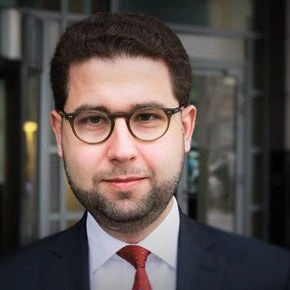
But the stories of the top-earning soccer stars living a glamorous life of wealth tend to make us forget that most athletes are not wealthy enough to retire when their careers end and find themselves facing the same challenges as everyone else looking to change professions.
A 1995 study of the Serie A, Italy’s top league, showed that half of all players earned ten times less than the top one percent and that most players who play professional football for 10-15 years - like many people in less famous professions - do not save enough for retirement, forcing many to take up a second career.
Unfortunately, changing jobs in Croatia is not as easy as in other countries. For example, to practice as a physiotherapist – a profession many athletes pursue after they are done playing – generally takes three years in Croatia but it also takes three more requirements than in the UK. Physiotherapists in an independent practice must have a university degree and one year of work experience. They must also take a professional exam and join the professional chamber. The prices for their services are also regulated in Croatia.
Physiotherapy is not the only regulated profession in Croatia, either. There are around 300 such professions in Croatia – far more than the European Union (EU) average of 200. Three in ten workers require a license to practice their profession in Croatia, compared to two in ten in the EU.
Occupational licensing has its advantages, as it can protect consumers and markets. Nobody would want to be treated by a doctor who failed medical school or fly with a pilot who has never seen a flight simulator. But occupational licensing also has a price, as licensed services are generally more expensive. And while licensed professions tend to pay better, there are also fewer jobs. Restrictive licensure and excessively tight conduct regulation can harm consumers and markets by limiting competition between providers.
Take quotas for example. In some professions, such as pharmacists or notaries, the number of providers is limited by law. If qualified professionals want to sell medicines or notarize documents, they have to wait until existing license holders stop operating. Incentives to grow and become more productive are limited. Consumers are likely to face higher costs, less choice, and lower quality.
In sum, such restrictions leave countries less competitive and poorer.
According to World Bank research, Croatia’s economy could be 5.7% more productive on average if the regulations on services were relaxed to levels seen in the least restrictive EU countries. This estimate includes the impact of regulatory reforms on four professional services: accounting, legal, engineering, and architecture. As an added incentive for policymakers in the country, the payoff of reforms is higher in Croatia than in any other EU member state.
The government of Croatia has committed to reforming regulated professions in its 2018 National Reform Program. The World Bank Group and the European Commission are working with the Government to make this commitment a reality.
Many players on Croatia’s soccer team are nearing their thirties and will retire before the next World Cup. Luckily for them, reforms to the regulation of professions will open new opportunities for them and for all Croatians.


Join the Conversation